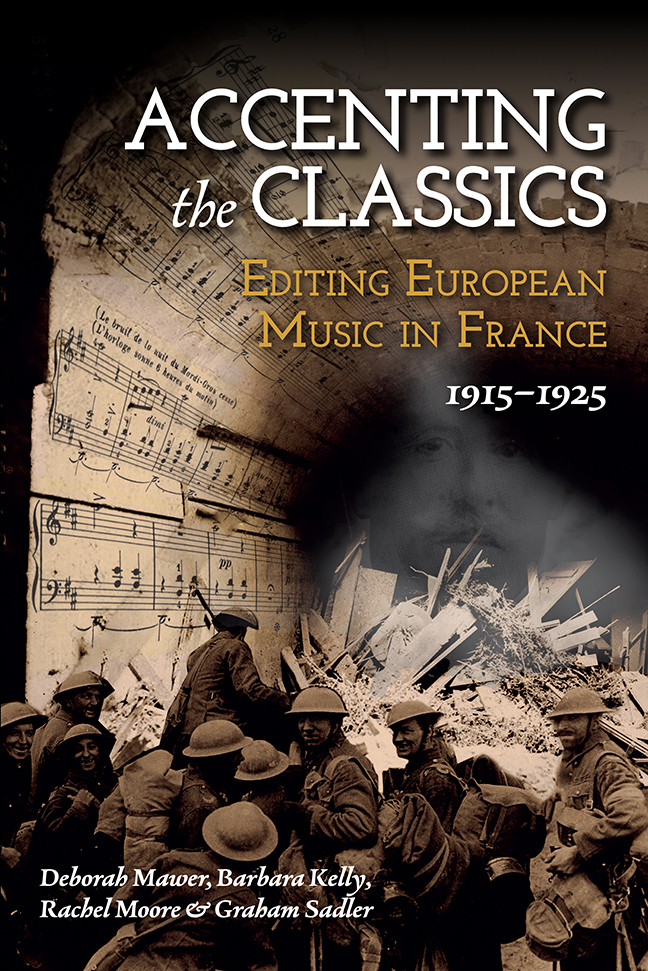Book contents
- Frontmatter
- Contents
- List of Figures
- List of Tables
- Notes on Co-authors
- Acknowledgements
- List of Abbreviations
- Note on the Text
- Introduction
- Part I Durand and His Édition Classique
- Part II Composer–Editor Case Studies
- Part III Beyond Editing: Pedagogy, Performance, Composition
- Afterword
- Select Bibliography
- Index
7 - Repackaging the Old Masters: The Place of Early Keyboard Music in the Édition Classique
Published online by Cambridge University Press: 10 January 2024
- Frontmatter
- Contents
- List of Figures
- List of Tables
- Notes on Co-authors
- Acknowledgements
- List of Abbreviations
- Note on the Text
- Introduction
- Part I Durand and His Édition Classique
- Part II Composer–Editor Case Studies
- Part III Beyond Editing: Pedagogy, Performance, Composition
- Afterword
- Select Bibliography
- Index
Summary
Although the repertory covered by the Édition Classique is strongly oriented towards music of the Classical and early Romantic periods, a substantial number of its volumes are devoted to music written before 1750. Take away the music of J. S. Bach, however, and the coverage falls to a mere seventeen volumes of music by French and ten by non-French composers, and only thirteen of these are devoted to the early keyboard music on which this chapter focuses.
Small though it may be, this sample nevertheless represents an especially fruitful area of investigation in the present context. The sources of the music in these early keyboard volumes presented Durand's editors with a range of challenges not found elsewhere in the series: many aspects of seventeenth- and eighteenth-century notational practice had long fallen out of use and were in some instances only imperfectly understood. Editors had to find solutions for ‘obsolete’ time- and key-signatures and non-standard rhythmic notation. They needed to be aware of the conventions governing the duration of accidentals within a given bar and the many issues relating to historical performance practice. They had also to decide what to do about notation that required an element of improvisation on the performer's part. Above all, they needed to grasp the thorny issue of how to represent the original notation of ornaments in a modern edition that was aimed at the general market.
The particular editors that Jacques Durand recruited to this task adopted a wide range of editorial practices, which we can explore within the broader context of European attitudes towards the editing of ‘early’ music. A comparison between Durand's editions of French and non-French music reveals marked differences of approach, an analysis of which throws light on the French attitude to its own early keyboard patrimony in relation to that of Germany, Austria and Italy. Moreover, these volumes provide a snapshot of the perceived needs of the target clientele, which in turn offers insights into the level of musical education in France. They offer clues to what ‘editing’ involved at this period and what status it enjoyed. Not least, they reveal the extent to which existing material was recycled and repackaged, thereby shedding light on the sometimes arbitrary process whereby individual pieces gained the status of ‘classics’.
- Type
- Chapter
- Information
- Accenting the ClassicsEditing European Music in France, 1915-1925, pp. 189 - 218Publisher: Boydell & BrewerPrint publication year: 2023



